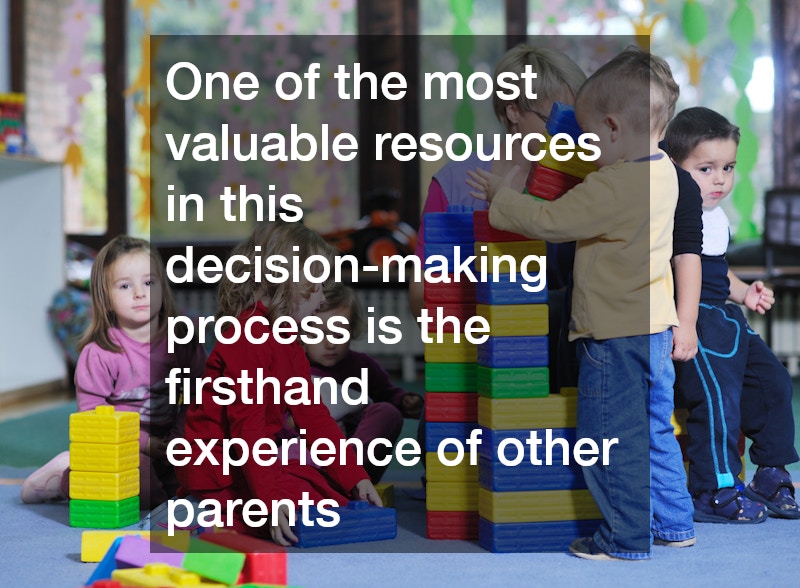As a parent, deciding between daycare and preschool for your child can be daunting. Both options serve essential roles in early childhood development, yet they cater to different needs and expectations. A key factor lies in understanding that preschool is different from daycare in terms of educational objectives and structure.
Daycare is typically defined as a facility providing care for children during the day, often emphasizing play and social interaction. While educational activities may be included, these centers generally focus more on providing a safe and nurturing environment.
In contrast, preschools have a curriculum designed to prepare children for kindergarten, incorporating structured learning experiences to enhance cognitive and social skills.
Another significant difference is that preschools tend to operate on a school calendar year, with holidays and breaks similar to elementary schools. Daycares, however, offer more flexible scheduling that can better accommodate the needs of working parents. Understanding these structural differences can help you choose the best option for your child’s specific needs and your family’s lifestyle.
Evaluating Educational Goals and Outcomes
Before making a decision, it’s crucial to evaluate what you hope your child will gain from the experience. Daycare programs often emphasize socialization and basic milestone achievements, providing a foundation in cooperative play and sharing. This environment is beneficial for children who thrive in less structured settings, helping them build confidence through routine interactions.
Preschool, on the other hand, includes a stronger focus on academic skills like early literacy and numeracy. Programs are typically designed around a specific curriculum and educational philosophy, such as Montessori or Waldorf, to nurture early learning. Preschool is different from daycare not only in curriculum focus but also in the expectation that children will engage in cognitive learning activities, which might include letter recognition, counting, and language development.
It’s essential to align your child’s educational environment with their developmental stage and learning style. For instance, a child who shows a keen interest in storytelling may benefit more from a preschool that encourages such skills through guided learning sessions. Before making a decision, parents should visit potential centers, observe daily activities, and discuss their goals with educators to ensure alignment with both immediate and long-term educational objectives.
Considering Practical Aspects
When choosing between daycare and preschool, practical factors such as location, schedule, and cost play significant roles. Daycare centers typically offer greater schedule flexibility, which can be crucial for working parents needing extended hours of care. This aspect provides peace of mind, knowing that your child is cared for in a safe environment throughout the workday.
Preschools, with their set hours aligning with the regular school calendar, may require additional planning to accommodate full-time working schedules. The structured nature of preschool programs, however, can benefit children by instilling a sense of routine and predictability. To optimize this transition, some parents may consider combining preschool with part-time daycare services to cover all hours needed.
Financial considerations cannot be overlooked when deciding between these child care options. It’s essential to compare not just tuition fees but also any additional costs such as transportation or extracurricular activities. By calculating the overall impact on your budget, you’ll make a more informed decision that aligns with your family’s financial planning, ensuring sustainability and satisfaction in your choice of childcare.
Gathering Insights from Other Parents
One of the most valuable resources in this decision-making process is the firsthand experience of other parents. Engaging with parent communities, whether online or in person, can provide diverse perspectives on both daycare and preschool options. This shared knowledge can shed light on the nuances of each type of care, enhancing your understanding beyond formal descriptions.
Many parents have found success in participating in local parenting groups where discussions about daycare, preschool, or even specific centers occur regularly. These interactions may reveal details such as staff turnover rates or how centers handle discipline and conflict resolution. Moreover, they can offer invaluable advice on how to manage transitions, such as your child’s first day at a new center.
Ultimately, parent testimonials can bridge the gap between theory and practice, providing assurance and confidence in your chosen childcare path. By learning from the experiences of others, you can make a more holistic and informed choice that supports your child’s unique needs while fitting seamlessly into your family’s daily life. Collaborating with fellow parents can also foster a supportive network that lasts well into your child’s educational journey.
